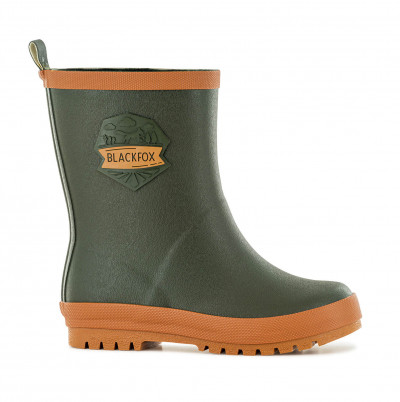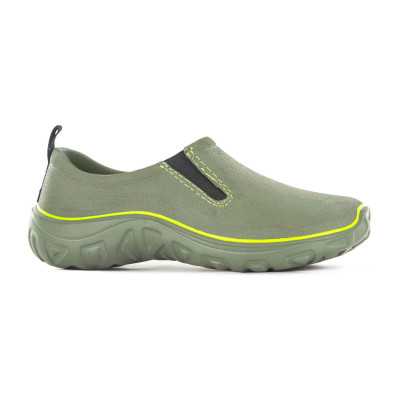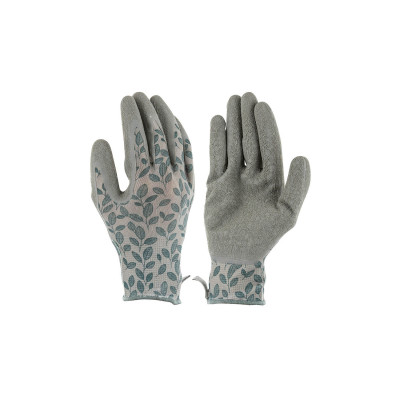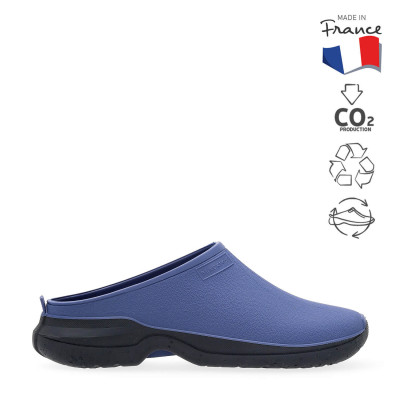Which shoes for which weather?
In the garden, shoes are much more than just an accessory: they ensure your comfort, keep you safe, and protect your feet from the elements all year round. Whether it’s boots for rainy days, clogs for sunny summers, or lined shoes for winter chill, choosing the right garden footwear is key to working efficiently while looking after your well-being. Check out our practical tips to help you pick the best shoes for every season and weather condition.
Which boots for rainy weather?
Rain is a constant companion for gardeners, especially in spring and autumn. To stay well protected, investing in rubber boots is essential – they’re known for their waterproof qualities and durability. But choosing the right pair makes all the difference.
How can you waterproof gardening shoes?
Waterproofing your shoes starts with choosing the right materials. Rubber, naturally waterproof, is ideal for garden boots. If you wear leather shoes, go for oiled or coated leather, both known for their water resistance. To boost protection, regularly apply a waterproofing spray. This ensures long-lasting impermeability, even during prolonged exposure to rain.
Rain boots or ankle boots?
When it comes to working in the garden, choosing between boots and ankle boots depends on your needs.
- High rubber boots provide full protection against mud and water splashes.
- Ankle boots, being shorter, offer greater mobility – ideal for activities that take you from the garden to the city.
How do you choose the right size for rain boots?
For winter use, choose a slightly larger size to accommodate thick socks. Also, make sure the calf width is roomy enough to ensure optimal comfort.
Tip: Try on your boots at the end of the day, when your feet are slightly swollen, to ensure the perfect fit.
How to wear rain ankle boots?
For a stylish yet practical look, go for rubber ankle boots with a matte finish or a suede-like effect. They’re perfect for both gardening and everyday city wear, while still offering excellent protection against the rain.
What shoes should you wear in cold weather?
In winter, keeping your feet warm is a top priority. The right footwear should combine thermal insulation, durability and comfort, while also ensuring optimal safety on icy ground.
What lining is best for my shoes?
Synthetic fur or Merino wool linings are ideal for your winter boots and clogs. Merino wool, in particular, offers exceptional thermal insulation and helps prevent odours thanks to its natural antibacterial properties.
Which thermal insoles should I choose for my shoes?
Multilayer insoles with aluminium inserts create an effective thermal barrier. These insoles reflect body heat back to your feet, providing lasting comfort even in very low temperatures.
Which lined clogs should you choose?
Lined clogs with removable linings are perfect for adapting to changing temperatures. Pair them with sturdy soles for maximum insulation and optimal grip on icy surfaces.
What socks should I wear with my boots?
Technical socks are an essential addition to your winter boots. Blending Merino wool with synthetic fibres, they regulate moisture and enhance comfort, while reinforcing high-friction areas for greater durability.
Which boots should you wear in warm weather?
Summer temperatures call for lightweight, breathable footwear to keep your feet cool while still providing reliable protection.
- Choose EVA clogs or shoes made with technical mesh for excellent breathability.
- Summer boots made from lightweight rubber or perforated leather offer the ideal combination of comfort and protection.
- Pair them with ergonomic insoles featuring strategically placed ventilation zones to prevent overheating and reduce perspiration.
Which sturdy shoes are best for gardening?
Intensive gardening requires sturdy footwear that can withstand wear and demanding conditions. Here are a few key points to consider:
- Materials: Choose high-performance materials such as rubber, oiled leather, or reinforced technical fabrics.
- Soles: Go for thick, non-slip soles that provide excellent grip on all types of terrain, while protecting against sharp objects and uneven surfaces.
- Reinforcements: Reinforced toe caps and water-repellent treatments are essential to ensure both safety and durability in your gardening shoes.
Why invest in the right footwear?
Working in the garden exposes your feet to a variety of risks – from moisture and heat to sharp objects. By choosing the right boots, clogs or shoes for each condition, you ensure your safety and make your gardening experience much more enjoyable.
Our advice: Invest in several pairs suited to different seasons and types of activities. This will extend the lifespan of your footwear while ensuring optimal comfort at all times.







